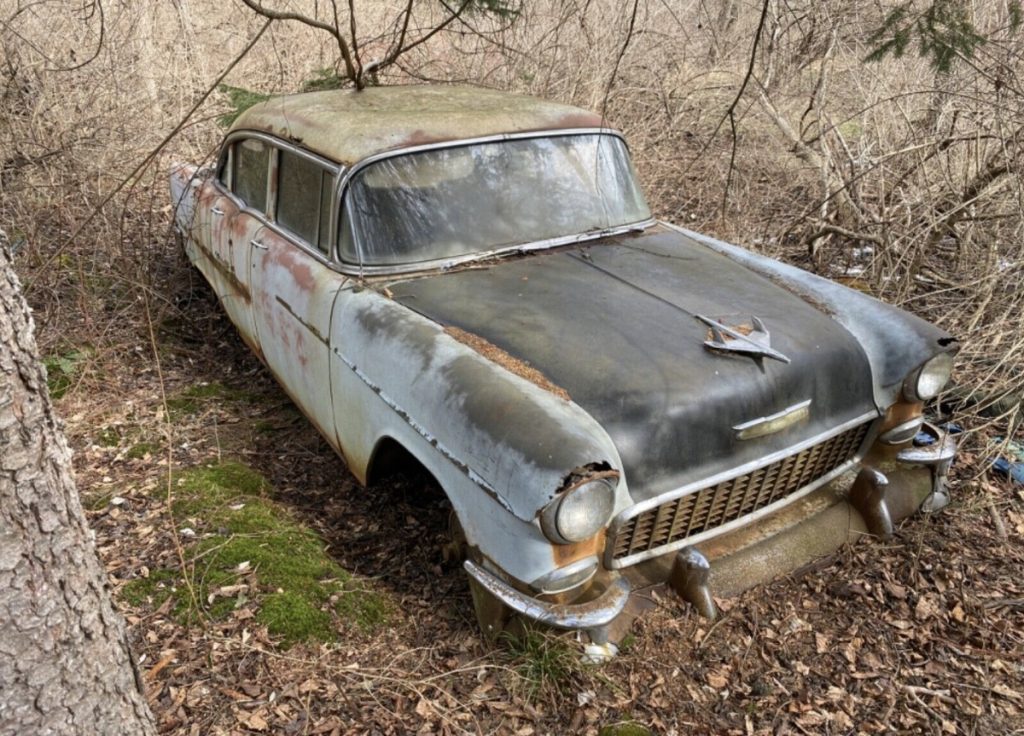The 1955 Chevrolet Bel Air holds a prominent position as an icon of the American car industry. With its groundbreaking features and stylish design, this classic automobile became a trendsetter, not only for Chevrolet but for the entire automotive industry.

The Evolution of the Bel Air
During the late ’50s and ’60s, most car manufacturers offered models equipped with a mix of six-cylinder and V8 engines. This strategy aimed to cater to a wider customer base with a diverse engine lineup. The 1955 Bel Air followed suit by providing options for both the 235 (3.8-liter) six-cylinder engine, with power variants of 123 and 136 horsepower, as well as three versions of the newly introduced 265 (4.3-liter) V8 engine.
The standard model boasted 162 horsepower, but customers also had the option to choose the Power Pack, offering an increased power output of 180 horsepower. However, the star of the show that year was the Super Power Pack, delivering an impressive 195 horsepower.
The Enigmatic Abandoned Bel Air
Presently, we encounter a surviving relic of those glorious times—an abandoned Bel Air shrouded in mystery. Resting on private property for an extended period, this car no longer exudes the luster that would captivate most collectors. Nevertheless, it still possesses potential value as a source of spare parts unless a valiant hero emerges to resurrect it and set it back on the road.
The condition of the engine remains uncertain; its presence beneath the hood remains a mystery. Similarly, the completeness of the vehicle raises questions. Although the photographed components appear original, their authenticity cannot be confirmed. The passage of decades in abandonment has left us with an enigmatic artifact.

The Arduous Restoration Journey
Restoring the Bel Air listed by the seller rfa52393 is not for the faint of heart. The task at hand is a challenging one, requiring dedication, expertise, and resources. However, for those daring enough to undertake this ambitious project, the rewards may prove immeasurable. The revival of this American legend would not only breathe new life into the Bel Air but also restore a piece of automotive history for future generations to marvel at.
Conclusion
The 1955 Chevrolet Bel Air, a legendary car that revolutionized the automotive landscape, now sits abandoned on private property. Though it may no longer possess its former glory, the allure of this American icon remains intact. The mysteries surrounding its past and potential restoration evoke a sense of intrigue and captivation, reminding us of the everlasting fascination with classic automobiles.

FAQs
1. Is the 1955 Chevrolet Bel Air still in production?
No, the production of the 1955 Bel Air ceased long ago. However, it remains an esteemed classic cherished by enthusiasts and collectors.
2. Can the abandoned Bel Air be restored to its original condition?
Restoring the Bel Air to its original condition is a challenging endeavor. It requires extensive knowledge, resources, and dedication. Only those committed to preserving its heritage can bring it back to its former glory.
3. How can I acquire an abandoned classic car like the 1955 Bel Air?
Abandoned classic cars are often available through various channels, such as private sales, auctions, or online platforms specializing in vintage vehicles. However, it is essential to thoroughly assess the condition and authenticity of the car before making a purchase.
4. What made the 1955 Bel Air an icon of the American car industry?
The 1955 Bel Air’s introduction of a V8 engine marked a significant turning point for Chevrolet and the wider automotive industry. Its stylish design, performance, and trendsetting features established it as an enduring symbol of American automotive excellence.
5. Can the abandoned Bel Air serve as a source of spare parts?
Yes, despite its deteriorated state, the abandoned Bel Air can potentially provide valuable spare parts for other restorations or repairs of similar models. Salvaging components from abandoned classics ensures the preservation of automotive history.